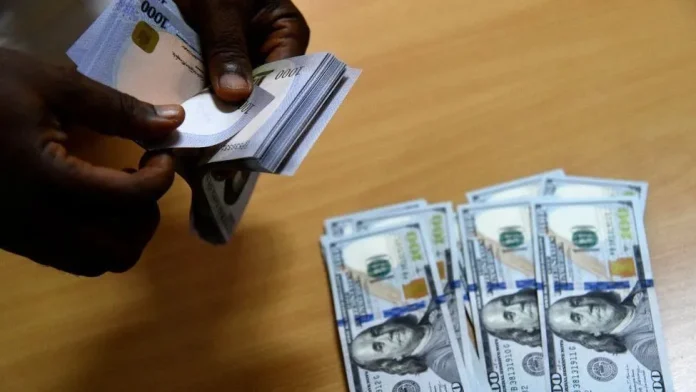The naira, the native currency of Nigeria, defied the expectations of the bulls on Thursday when the exchange rate broke out following sporadic FX sales throughout currency markets.
The naira depreciated by 1.08% from the previous day to close at ₦1,603.80 per dollar on the official market. On Thursday, the market saw increased qualifying demand for US dollars.
Exchange rates were held below the N1600 band last week, but on Monday they rose to N1500 as a result of US dollar sales to authorized FX dealers in both the informal and parallel markets.
The currency market’s foreign exchange liquidity stayed low in spite of the top banks’ sales actions. Notwithstanding a 1.5% ceiling on FX sales to invisible FX users in the informal currency market,. The naira ended the day on average at N1,565 per US dollar in the parallel market, according to a channel check.
According to information obtained from the CBN website, Nigeria’s gross external reserves climbed further to $36.374 billion, covering more than 11 months of imports based on the latest trade data.
In the global commodity market, crude oil prices experienced notable declines on Thursday. West Texas Intermediate (WTI) crude futures closed at $77.28 per barrel, and Brent crude settled at $81.09 per barrel. WTI futures dipped below $77 per barrel, marking their lowest level in over six weeks.
This decline was driven primarily by weak demand from China, which overshadowed positive US inventory data. China’s reduced oil imports and lower refinery activity, attributed to sluggish economic growth, exerted downward pressure on prices.
Additionally, ongoing ceasefire negotiations between Israel and Hamas raised expectations of reduced supply risks, further contributing to the drop in oil prices.













